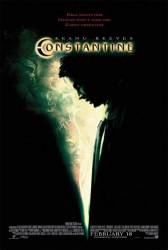
Question: Even though Isabel committed suicide, shouldn't she have gone to heaven? She willfully sacrificed herself to insure that Mammon couldn't cross on to earth so in a way, she was saving billions of people, so that should have guaranteed her entry into heaven.
Answer: If a soldier jumps on a grenade and dies to save his fellow soldiers, it's considered giving one's life for others. To my understanding, that isn't considered a "sin." If it was a mental health issue, a just God would give her a pass. If she was doing it to thwart Mammon's plans, again she was sacrificing herself. If she did it to get Constantine involved to help stop Mammon, again is was self sacrifice. (Notice how she says "Constantine" just before jumping when her sister views the video?). As a plot device, I understand it, but from a theological standpoint it is weak.
Answer: It is shown in the movie that it was Balthazar who whispered into her ear, gave her suggestions. Eventually she committed suicide to escape that, to escape her torment. She certainly didn't sacrifice herself to keep Mammon out because Mammon needed twin psychics, one in hell and one on Earth to do it, which Balthazar achieved for him.
The film doesn't give information about the need of having one twin in hell and the other on earth to complete Mammon's plan; the movie states Mammon needs a powerful psychic and God's help. It isn't shown either that Balthazar was the one whispering to Isabel's ear considering she was apparently hearing Hellspeak, but no individual besides her appeared on the death scene; therefore, it was left ambiguous. Otherwise, provide evidence of the statement above.
When John and Angela are walking back to the elevator after taking care of Balthasar they specifically mention Mammon needed twin psychics. The only reason would be for their connection. One is in hell, the other on Earth. Through their connection Mammon is able to posses Angela. As for the second thing. When Isabel commits suicide you both hear Balthasar whisper to her and she has the mark on her wrist, like Hennessy had on his hand palm, the sign of Mammon. They wanted her in Hell.
The dialogue, when they are walking towards the elevator, is "Constantine: Beeman said Mammon needed divine assistance to cross over. How's the blood of God's only son? Ángela: The stains on the spear. Constantine: Yeah. Ángela: So he gets the spear. He still has to locate a powerful psychic. Constantine: Not really. Ángela: Twins." Angela says "twins" after hearing Constantine say "Not really." (while looking at her) which made Angela realise that she was Isabel's replacement as a powerful psychic since they had the same gift, but the former's was dormant up until that moment. It's not because the plan needed one in hell and the other on earth. That's never stated as far as we know from the information provided by the film. As for Balthazar, it's never stated it was him who whispered to Isabel. That's an assumption based on hearing the voice alone. Also, the mark appeared on the guy's hand at beginning of the film after he found the spear and Balthazar was probably not there.
It's not an assumption when it's his voice. It doesn't all have to be "stated." And the whole twin part is just a coincidence? Are you saying Gabriel and Balthasar found twin psychics so they have a backup if one of them dies? That's ridiculous. They needed twin psychics specifically, and they make one of them commit suicide. That's not just a random thing, it's what needed to be done. And it's Mammon's sign, not Balthasar's.
It's an assumption because there is insufficient evidence to prove it, and there were other voices in the film to assume it was specifically Balthazar's given that Angela heard a similar voice calling her name when she was in hell and Mammon appeared, which could indicate that maybe it was Mammon who whispered to Isabel too but still not clear though. It's more speculation. Yes, not everything has to be stated since some things are implicitly given although it also depends because it can become ambiguous if it lack details which is open to interpretation, but the movie dismisses any possibility of your theory of "one in hell and the other on earth" by stating what the "villain" needed and with that the argument doesn't work. Otherwise, it would be a plot hole for creating an inconsistency with the rules established before. Angela just realised she was the powerful psychic since they had the same gift, so Mammon didn't have to locate another one since it was there in the other twin.
There is no inconsistency with the rules, there is help from god, there is a psychic. All that fits, the Hell Bible just wasn't specific enough, they didn't know the full plan. There is something significant about them being twins. Both because Isabel was killed and Angela and Constantine realise that's what Mammon was looking for.
Now, all that is just speculation, and misinterpretation of what has been explained in the reply above yours. Not continuing the discussion.
Answer: The film itself can't be blamed for that really because it was left ambiguous; the novelization added the part of Isabel's sacrifice to the story. If we go by what the film gave us then Isabel might have been an unstable person considering even Angela didn't back her up about what they could see which could've led her to believe that maybe she was indeed crazy, and as Constantine said "You think you're crazy long enough, you find a way out." Perhaps she just wanted to end everything that was happening to her. There isn't enough information in the movie to confirm or deny it.
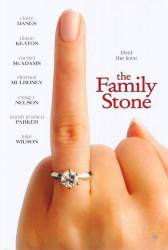
Question: Has anyone else noticed that Everett and Julie are not seen with the rest of the cast in the last scene? They just dash by in the hall. Is it possible the ending was reshot any they were added in post?
Answer: Well, Everett ends up chasing after Julie, telling her she should stay for New Year's so the family doesn't notice.
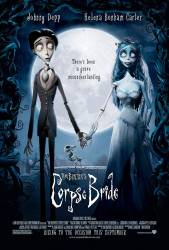
Question: In one of the extras, Tim Burton says that he got the idea for Corpse Bride from a story. He said just that it was just a few paragraphs, but what is the story that he is talking about?
Answer: It's a 19th century Russian Jewish folk-tale - the story starts quite similarly, with the lead character saying his vows while putting the ring on what he believes to be a stick. The tale generally finishes with the rabbis annulling the marriage and the living bride vowing to honour the memory of the corpse bride throughout her marriage - which ties into the Jewish tradition of honouring the dead through the lives of the living.

Question: What happens to the Natives? After the first contact with Denham & Co and the sacrifice of Ann they make no further contact with the group, even when the group are inside their village at various points after this.
Answer: They scared them off with their guns. In the scene where they capture Ann to sacrifice her to Kong, Denham and his men come to rescue her and when they start shooting the natives hide. It's never fully explained but the most likely answer is that they are too scared and have even moved villages or are just hiding really well.
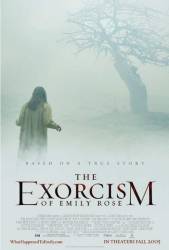
Question: At the end of the movie, Emily is greeted by the Virgin Mary who gives Emily a choice. She can either ascend to heaven or remain on earth and become a martyr to prove that God and demons are real. Emily chooses to become a martyr and shortly after dies. How is her death supposed to prove that God and demons exist when Ethan came up with so many logical explanations for her demonic attacks? For that matter, how would she be able to tell people that God and demons are real if she isn't even alive?
Answer: You seem to have missed the point. It boils down to what Emily believed, not anything Ethan manages to explain away. In her written letter the priest reads in court she explains that she believes people would have to believe in God if she showed them the Devil. The logic goes like this: if someone sees or experiences something so horrible that they have to believe the Devil exists, then there has to be a God as well. It's about getting people to embrace faith, which was her ultimate goal. She wasn't concerned with anyone potentially finding evidence to the contrary. She believed that she had to suffer greatly and die in order to achieve the goal, which is the essence of martyrdom. Whether she suffered from mental illness or demonic possession is irrelevant in the end. Emily believed that she did her part to prove God exists when she died and that was all that mattered to her. As for her telling anyone despite her being dead, well, there were witnesses to the attacks and her story was national news. Her story would live on after her death, so in a way she'd be telling anyone that looks into her story.
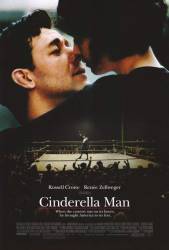
Question: I realize how much the wedding ring must have meant to Mae Braddock, but I don't see why she would not have pawned it, rather than send her children away or become sicker because they could not pay for the heat?
Answer: In that case, you apparently don't realise how much the ring means to her.
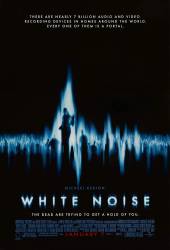
Question: I was really confused by the ending, who were the three figures we kept seeing, and what were they trying to do?
Answer: The figures are spirits who figured out how to contact the living, like Michael Keaton's wife. But where his wife wants him to help others, the three spirits are evil and want to only do bad things.
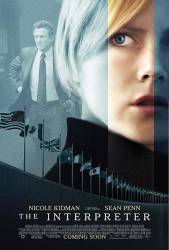
Question: When Sylvia is reading through Simon's book, she writes down that Simon died, etc. Then she started to write "Sylvia". Why?
Chosen answer: At this point, she has set her mind on killing the African leader and knows she'll likely be killed immediately afterwards (police, bodyguards, etc). She's writing her name in anticipation of her death.
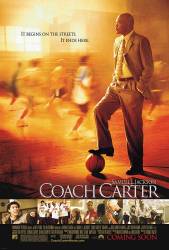
Question: Is any of the sub-plot with Timo Cruz and his friend (relative?) getting shot true?
Answer: I take it that you are asking if in real life was Timo Cruz's cousin shot. The answer would be no because Timo Cruz is not a real person. While the film is (loosely) based on a true story, none of the players in the film (with the exception of Damien, Coach Carter's son) were real life students of Carter. The characters in the film were all composites of real life players. That being said, I don't know if there was a player on the team that had a cousin shot, certainly nothing prominent about it is reported. It's highly unlikely though as many of Carter's real life players dispute the negative portrayal of the personalities of the players and say the characters were falsely portrayed (along with facts like game scores and records). Darryl Robinson is quoted as saying "Hollywood missed it by a country mile. The kids buying drugs and shooting people, that never happened. The kids were a good group to begin with, there were no troublemakers, there was none of that."
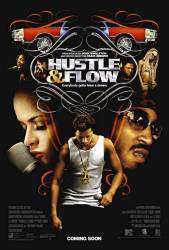
Question: Did Terrance Howard do his own rapping for the film?
Answer: Yes he did. The lyrics for the songs that he raps in the movie were written by the group Three Six Mafia.

Question: Why were Jack and Ennis fighting on the hill on Brokeback Mountain? Ennis's nosebleed looked pretty serious.
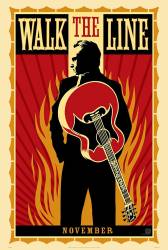
Question: After John's arrest in El Paso, in the following scene he's talking with Viv about the incident and denying he has a problem, even though she says everyone around him says so. She then asks about June and he says she left the tour and Viv responds with "Well that explains everything, doesn't it?" What exactly does she mean by that statement?
Answer: Viv's implying he is acting the way he is cause he is upset about June leaving.
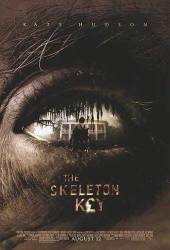
Question: What was the deal with the mirrors? Are there spirits in the mirrors? Or can Violet (or whoever's body happens to be inhabited) see her "true self" in the mirror? When Caroline first spends the night, a figure, like Mama Cecile, can be seen in her little mirror. If the spirit is in the body (Violet's), why would it be wandering around? So, the mirrors expose their true identity, correct?
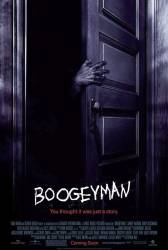
Question: In the preview for this movie, there is chanting in the background of something that ends with 'When you see him count to five, pray that you will stay alive.' What, if anything, is this?
Answer: This is a made up children's rhyme just like the "Nightmare on Elm Street" series has "One, two, Freddy's coming for you, three, four, better lock the door,..."
Answer: It's from the TV Spot for the Boogeyman from 2005. This is the clip that it comes from. The rhyme haunted me for a long time and I'm glad I'm not the only one who remembers it! It goes: https://www.youtube.com/watch?v=0sCzBRCJXvU When you're scared just count to ten, you will feel all good again. When it's dark just count to eight, the Boogeyman will hide and hate. When you see him count to five, pray that you will stay alive.
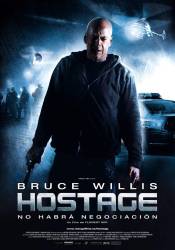
Question: I have two questions. 1) What exactly does Mr. Smith do with the DVDs? 2) I don't understand the final scene, is Mr. Smith helping Jeff Talley or is he helping the masked men?
Answer: The purpose of the DVD is that the information the criminals are after is hidden in the code of the DVD. The illegal bank accounts and funds and such are all encrypted on the disk. He is also helping Jeff after he realizes that he put his life on the line for his family and saved his children.
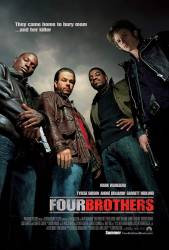
Question: This seems like a stupid question, but is Jack really gay, or are they all teasing him? I'm just a little curious as to whether there's a deleted scene or something on the special DVD which clarifies that point.
Answer: Yes he actually is gay and the other brothers tease him but as more of a loving way.
Answer: They are just teasing him, like all good brothers do.
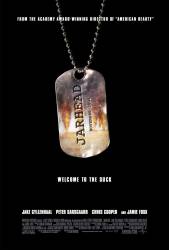
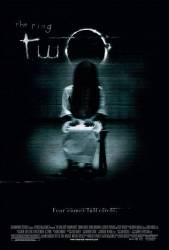
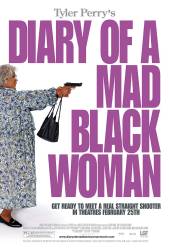

Answer: Sin for a good reason is still sin, and as Gabriel says earlier, you can't buy your way into Heaven. Real Catholic dogma, however, doesn't hold the mentally ill as condemned for committing suicide.
Greg Dwyer
Except Isabel wasn't mentally ill. She saw angels and demons just like Constantine did. It was her parents who believed she was mentally ill.
While suicide is a mortal sin, it's shown later (as in major plot point) that sacrificing yourself to save the world is a redeeming act.
Yes, but Constantine also said "My parents were normal. They did what most parents would do. They made it worse. You think you're crazy long enough, you find a way out" which could relate to Isabel losing her sanity in a way as well because of her family and how they saw her. The whole Isabel's sacrifice is added by the novelization but the movie is ambiguous about the suicide.
mp1920
Except Isabel wasn't mentally ill. She saw half breeds just like John did.
Sacrificing yourself for others isn't a sin.